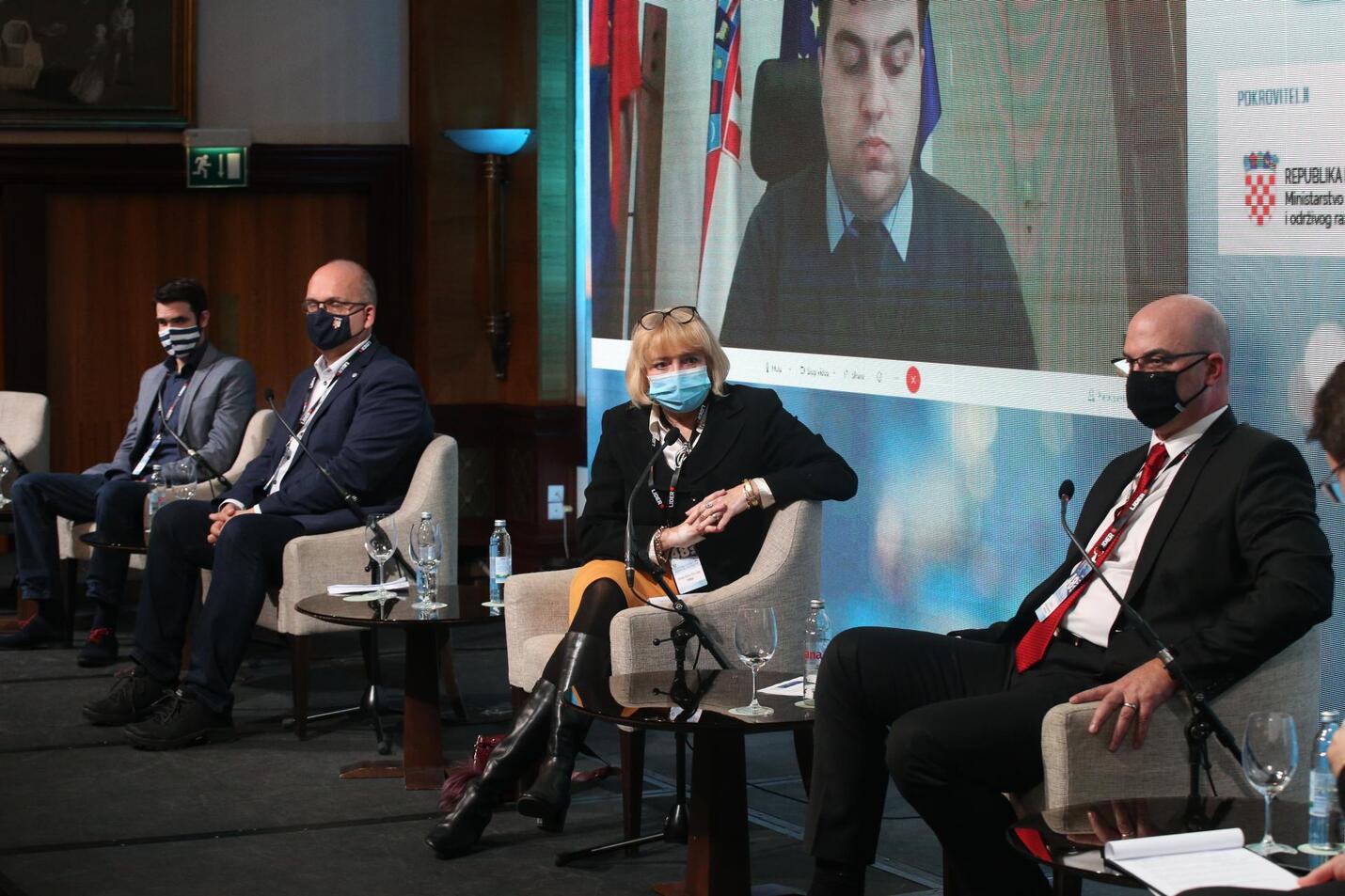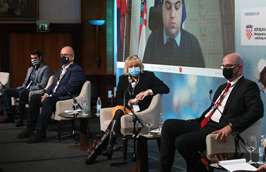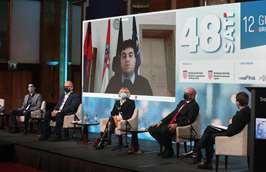01.12.2020.
Participants in the panel were Ivo Milatić, the state secretary at the Ministry of Economy and Sustainable Development, Mario Rajn, the mayor of Križevci, Julije Domac, the director of REGEA, and Mario Mesarić, the director of the company Ires Ekologija.Alenka Košiša Čičin-Šain touched upon the activities of the Fund referring to the start of the year, which was rather challenging in the light of the coronavirus pandemic and considering that despite this in late June public calls totalling HRK 650 million were launched. “If we talk about the transition in transport, a significant portion of these calls were for the transport sector, and not only the purchase of electric vehicles,” said Čičin-Šain. She added that the calls were primarily aimed at towns, with HRK 130 million allocated to make the green shift in transport.
The Fund also launched the public call for the integrated and intelligent public transport to which the towns can apply, with HRK 30 million allocated to this end. In terms of energy efficiency, the call with the most allocated funding this year is for the energy renovation of family houses with HRK 210 million.
During the panel, the state secretary at the Ministry of Economy and Sustainable Development, Ivo Milatić, presented the key steps that the ministry will take next year regarding the energy transition. He pointed out several important things, primarily continuing with legislative activities. “We have adopted almost all strategic documents, and now we have to work on legislative activities,” said Milatić, adding that a lot of time is put into programming all the funds that will be available.
He also said that all the efforts should be directed to the financial resources we will get from the funds – especially concerning the energy sector – which should be put to good use: to upgrade the network, to promote new technologies, and to invest further in energy efficiency.
The director of REGEA, Julije Domac, mentioned the production of electricity on site, “Such production is limited in Croatia at the moment. Although we’ve had some great projects, they require a better legislative framework, which needs some improvements,” said Domac.
Mario Mesarić, the director of the company Ires Ekologija, which deals with environmental impact assessment of energy projects, said that he saw an opportunity for the investors and units of local self-government to start considering potential environmental impacts in the earlier stages to avoid any problems later on.
The mayor of Križevci, Mario Rajn, said that the citizens of Križevci had established their own energy cooperatives as investors who committed their resources int photovoltaic power plants on buildings. “The citizens of Križevci are also showing interest in installing these modules on private houses,” added Rajn.
The panel discussion was followed by the presentation of the IT system START that is so far the greatest step forward in making simpler the starting of a business in Croatia. The implementing authorities are the Croatian Government and the Ministry of Economy and Sustainable Development while the system was developed by FINA, which also provides customer support.








